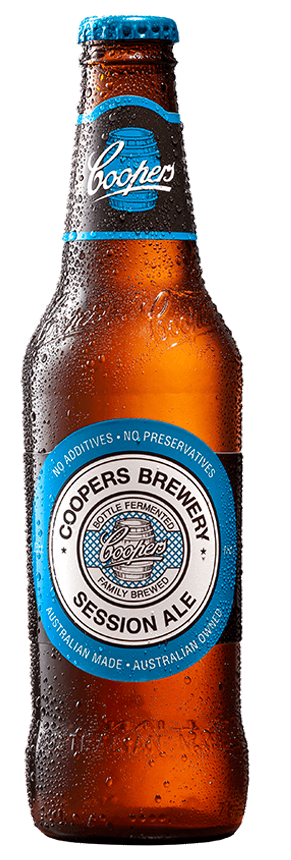I've concluded Pilsner is my favourite kind of beer. Not too light, not too heavy, good ones are sharp and crisp.
Fuck Israel
a long history with alcohol doesn't mean our bodies have adapted to make it not poisonous. that's not how it fucking works. human beings have a long history with mushrooms, too -- do you take those regularly? they are about 10,000x less toxic and harmful than alcohol. go nuts dilbert!Dilbert_X wrote:
Never met a problem or problematic drinker or felt tense around anyone, I have seen multiple people go off the rails with marijuana and party drugs though.
Just because one product when used to excess is harmful is not an argument for allowing other harmful products onto the market.
Human beans do do have a long history with alcohol, with whatever your buddy who thinks he's a neurochemist cooked up in his lab the other day - probably less so.
Last edited by uziq (2019-07-09 04:59:51)
Last edited by uziq (2019-07-09 05:43:54)
Alcohol is considered the socially acceptable drug in western society due to the fact that the warm weather drugs like marijuana and cocoa couldn't grow in winter and famine stricken Europe. The rate of alcohol consumption decreases in every state that has legalized marijuana which leads me to believe that the Europeans wouldn't have built up a vast drinking culture had they had access to marijuana and coffee early on.uziq wrote:
it's also amusing to me that human beings have been chewing cocoa leaves, khat, eating mushrooms, brewing yagé, etc. for much longer than we have been fermenting alcohol as an agricultural civilisation, and yet dilbert isn't out on vision quests with his native indian brethren every weekend. haven't human beings historically adapted to the ritualised experiences of these drugs, too?!? why is it only alcohol that gets the blind-eye pass because it has been taken for so long. historical inertia doesn't protect livers or combat the risks of heart disease and colorectal cancer, dilbert. lots of people die from alcohol-related morbidities.

Last edited by uziq (2019-07-09 06:05:12)




maybeuziq wrote:
the words 'safe space' and 'sex' are a little too proximate there. people who use needles a lot tend to be at a high-risk of giving you blood-borne diseases.
why don't you get a nice woman you actually respect for a change? how's that for a radical idea. stop preying on retarded TAs and embryonic students.


Last edited by uziq (2019-07-16 01:40:22)
Last edited by uziq (2019-07-16 05:58:34)

Last edited by Dilbert_X (2019-07-16 23:13:17)
https://maps.org/research/mdmajohn hopkins school of medicine researchers find MDMA, or ecstasy, reactivates a learning period for social rewards, allowing test subjects to form positive associations where none existed before.
https://www.newsweek.com/mice-mdma-brain-ptsd-1384948The FDA has designated MDMA-assisted psychotherapy for PTSD a Breakthrough Therapy, and has come to agreement with MAPS on Phase 3 protocol designs after a rigorous Special Protocol Assessment (SPA) process. MAPS' goal is to develop MDMA-assisted psychotherapy for PTSD into an FDA-approved prescription treatment by the end of 2021.
We are studying whether MDMA-assisted psychotherapy can help heal the psychological and emotional damage caused by sexual assault, war, violent crime, and other traumas. We also sponsored completed studies of MDMA-assisted psychotherapy for autistic adults with social anxiety, and MDMA-assisted psychotherapy for anxiety related to life-threatening illnesses.
In MDMA-assisted psychotherapy, MDMA is only administered a few times, unlike most medications for mental illnesses which are often taken daily for years, and sometimes forever.
i love how you'll sensationalise the after-effects of MDMA but then don't think about ... hangovers ... you know ... that state of being literally poisoned ... by a toxic substance ... your liver full of acetaldehyde, a poison ... vomiting, dizziness, issues with blood pressure, extreme swings of mood, depression, withdrawal syndrome ....Researchers have found that the psychedelic drug MDMA reawakens a critical period in brain development in mice—a finding that casts new light on why the substance may be helpful in treating some people with post-traumatic stress disorder (PTSD).
According to a study published in the journal Nature, just a single dose of MDMA helps to re-open this critical period—think of it as a kind of window—in adult mice. During the window, the brain is more sensitive to environmental stimuli and social interaction is more rewarding.
"We think that what MDMA does is cause oxytocin to be released," Dölen told Newsweek. "That extra oxytocin in turn causes the critical period for social reward learning to come back in adults."
The researchers say that their new findings could potentially have implications for the development of treatments for certain mental health conditions in humans.
look! we can play the 'scary scientific findings' game all day. do you really think consuming alcohol doesn't effect your brain chemistry on a long-term basis? both MDMA and your beloved alcohol are neurotoxic, d i p s h i t ! let me know when there are 60 different LSD or MDMA-related disorders!Alcohol is one of the most widely used psychoactive substances in the world. Alcohol-induced changes in brain functions can lead to disordered cognitive functioning, disrupted emotions and behavioral changes. Moreover, these brain changes are important contributing factors to the development of alcohol use disorders, including acute intoxication, long-term misuse and dependence. According to a survey sponsored by the World Health Organization, approximately 50% of the world adult population drank alcohol in 2004 and 76 million individuals met criteria for one or more of the 60 different alcohol-related mental or behavioral disorders listed in the 10th Revision of the International Statistical Classification of Diseases and Related Health Problems (ICD-10).[1] A report on the relative contribution of different conditions to the ‘global burden of disease’ (which considers both premature mortality and disability) found that in 2010 alcohol ranked third out of the 25 major causes of the global burden of disease. In high-income countries the relative importance of alcohol-related health problems compared to other health problems is usually greater than in low- and middle-income countries.[2] Alcohol dependence, one of the most important alcohol-related conditions, is widely recognized as a growing global problem with serious medical, economic and social consequences..
Ethanol is a liposoluble neurotropic substance which penetrates the blood-brain barrier and inhibits central nervous system (CNS) functions; it is directly toxic to the brain. The etiology and pathology of alcohol dependence is the outcome of a complex interplay of biological, psychological and socio-environmental factors. CNS neurotransmitters play an important role in the development of alcohol addiction. Previous studies identified a wide range of neurotransmitters related to alcohol metabolism including dopamine, 5-HT, γ-aminobutyric acid, glutamate, endogenous opioid transmitter, acetylcholine and norepinephrine.[3] This review summarizes research progress in understanding the relationships linking the dopaminergic system and alcohol consumption.
Last edited by uziq (2019-07-17 03:15:55)